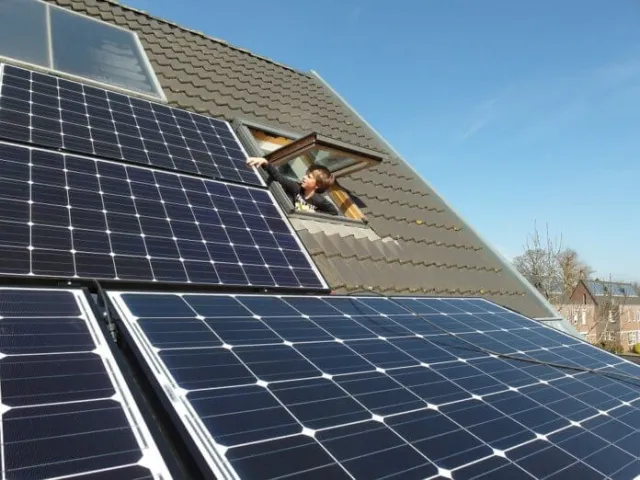UMass Amherst Researchers Develop New Method To Estimate Solar Rooftop Potential
Aug 9, 2019 04:53 PM ET

Researchers at the University of Massachusetts Amherst’s College of Information and Computer Sciences (CICS) have developed a method for automatically assessing rooftops for solar potential.
Led by Prashant Shenoy and Subhransu Maji, the researchers are proposing a data-driven approach that uses machine learning techniques and widely available satellite images to identify roofs that have the most potential to produce solar power.
Shenoy, Maji and their colleagues are presenting the new “DeepRoof” tool this week at the 25th Association for Computing Machinery’s Special Interest Group on Knowledge Discovery and Data Mining (ACM SIGKDD) conference in Anchorage, Alaska.
Stephen Lee, a Ph.D. student at CICS and lead author, points out, “Solar potential estimation of a roof can substantially benefit homeowners deciding to adopt solar, [but] current automated tools work only for cities and towns where LIDAR data is available, thereby limiting their reach to just a few places in the world.”
The new data-driven DeepRoof approach takes advantage of recent advances in computer vision techniques and uses satellite imagery to accurately determine roof geometry, nearby structures and trees that can affect the solar potential of the roof.
“DeepRoof estimates can be used to identify ideal locations on the roof for installing solar panels,” Lee adds.
The team trained DeepRoof using different roof shapes and sizes from six cities to recognize and extract planar roof segments, Lee says. Results show that DeepRoof can identify the solar potential of roofs with 91% accuracy. Further, the tool can be scaled to automatically analyze satellite images of an entire city to identify all building roofs with the most solar potential.
In addition to Lee, Shenoy and Maji, the research team includes CICS alum Srinivasan Iyengar, now at Microsoft Research India, and mechanical engineering graduate student Menghong Feng. Support from the project came from the National Science Foundation and the Massachusetts Department of Energy Resources.
Also read

